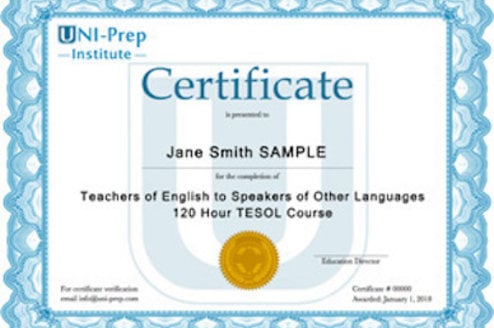Teach English in Lisbon, Portugal
Teaching Programs in Lisbon
About
Climbing the steep cobblestone streets, the melodious notes of fado hanging in the air, you'll notice the salty sea swirls before you and an abundance of fried fish and custard pastries in nearby shops and cafes tempt your appetite. One of the most underrated cities in Europe, Lisbon is a lovely place to live, explore and teach.
A city of discovery where historic travelers such as Vasco de Gama, Christopher Columbus, Amerigo Vespucci and Ferdinand Magellan once stepped foot, this port offers much to a local English teacher; allowing you to begin your own Age of Discovery. The oldest city in Western Europe and a once flourishing empire, Lisbon is of course ridden with history and cultural influences, from the Romans to the Muslims.
While the demand for English teachers in Portugal is not as high as in other European countries, the market exists and is worth investigating if you’d like to spend time in this fabulous country. Seeing as the country is suffering from a depression, most people do not have extra money to pay for English lessons. That being said, though, the Portuguese are enthusiastic and welcoming folks interested in improving their language skills and expanding global horizons.
In order to teach English in Lisbon, most teachers will require a university degree and/or TEFL certification. The average salary for teaching in Lisbon is $1,000 - $1,250 per month.
Job Types
Public Schools
Public Schools do of course exist in Lisbon, however it can be a challenge to find a job, seeing as you must pass the Portuguese proficiency exam. However, if you are able to land a job in a public school, they cover health insurance, which is a nice perk.
Private Language Academies
Private Language Academies are very popular in Lisbon. Hours usually run from 20-30 hours per week teaching adult students. As mentioned before, peak hiring months would be June or July for a September start and early January for the second semester.
International Schools
International Schools are another viable option. The hours and hiring seasons are generally the same. Though located outside of Lisbon, St. Dominic’s International School is quite reputable, as well as the Carlucci American International School of Lisbon (CAISL).
Private Tutoring
Private lessons are another option for expanding your income. You will have to do most of the legwork by advertising at local schools, online, etc. Perks of the job include making your own hours and negotiating a hourly rate. 10 to 25 Euros per hour is a good range, depending on travel time and whom you are tutoring.
Finding a Job
When and Where to Look for Jobs
The most popular places to find jobs in Lisbon are at foreign language schools. There are a number of schools throughout the city, and it is advisable to do some research before arriving. The best times to find work in Lisbon are at the beginning of the school year, which starts in late September, or the second semester, in January. In Lisbon, they generally prefer to meet with prospective employees in person.
Thus, it is best to arrive at least a month prior to the typical hiring season in order to secure a position. There are also short-term opportunities to work at English language camps during the summer months.
Qualifications
If you plan to work as an English teacher in Lisbon, you must be a college graduate with either a BA or BS degree. An additional TEFL certification is necessary as well. While the demand for English teachers is high in Portugal, qualifications and experience are essential.
Need to Know
Salary & Cost of Living
As mentioned before, an English teacher can expect to earn between 700 and 1,000 Euros per month, (~1,000 - 1,400 USD). Depending on your school, it is possible you might receive an hourly wage. Teachers generally work 20-25 hours per week in the classroom (re: this doesn't include planning time).
If you wish gain more experience through private lessons, you can advertise at local establishments and by word of mouth. The average hourly rate in Lisbon can range from 10 to 25 Euros per hour and can be adjusted accordingly.
As far as general cost of living goes, meals can range from 7 euros a pop to 15 euros, coffee is 1 euro, and a one way ticket on local transportation is 1.50 euro. (Numbeo).
Accommodation
Housing is generally not included for teachers, but there are many ways in which you can find affordable housing. You might consider speaking with teachers at local schools, searching online and walking around areas of the city calling rent numbers. Some popular search engines for apartments in Lisbon include: Idealista, Espacos Lisboa, Nuroa, Aluga Lisboa and many more.
Lucky for you, most apartments come furnished, so no need to worry about lugging furniture or appliances. Be sure not to commit to anything prior to seeing an apartment and meeting the landlord and/or roommates. Don’t set yourself up for problems!
There are many nice neighborhoods in Lisbon. If you want to spend less on housing, living outside of the city would be a possibility, though you will then have to account for transportation costs.
Within the city, Baixa is the business district and is relatively quiet at night. Chiado is a shopping area and relatively touristy, while Bairro Alto is quirky and has a great night scene, but also inhabited with drug dealers. It is important to take into account where your school is located when looking for housing, if the commute is important to you.
Classroom & Work Culture
As a whole, the Portuguese are extremely hospitable, but also traditional people. This is exhibited not only in personal but also work life. Therefore, it is crucial that you dress and behave appropriately, especially when going for an interview.
After an interview at your school, you will be more equipped to gauge suitable attire. Generally, it is smart to shake the hand of everyone you meet, and dress business casual. For men, this means a button down with a tie and jacket, while women can wear a dress and a jacket or pants suit.
Given the conservatism of Portuguese culture, it is not surprising that the teachers are expected to be strict and authoritative. Students are disciplined accordingly.















